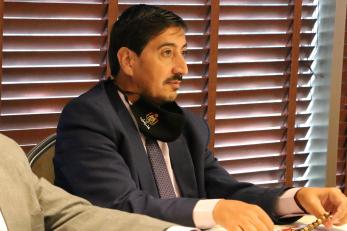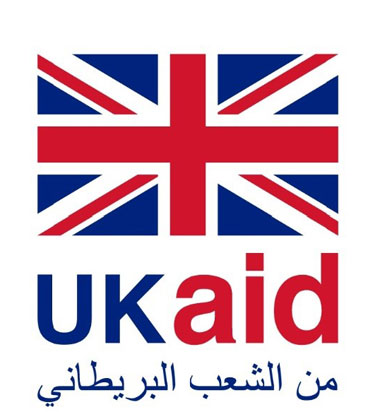Road to parliament: Community leader elected

“I think being a community leader is what gave me the credit to be representative in the parliament,” this is how Mr. Ahmad Al-Qatawneh started his interview with the Mercy Corps team.
In 2013, Mercy Corps launched the Leadership and Community Development program funded by FCDO (UK aid). One of the program’s pillars is about building the capacity of community leaders - Jordanian and refugee men, women and youth - who work to mitigate tensions, build social cohesion and amplify voices of citizens.
Mr. Ahmad Al-Qatawneh joined the program in 2015, as a community leader representing the Al-Mazar area of Al-Karak governorate. Since that time, Mr. Al-Qatawneh attended trainings with Mercy Corps, met community leaders from all governorates across Jordan and worked hard to represent his communities needs.
“Being a community leader gave us the chance to benefit from intensive capacity building, participate in meetings and get to know a large group of youth from all Jordanian Governorates. Meeting community leaders from different governorates helped me to gain more experiences and to enhance my skills,” said Al-Qatawneh.
Mercy Corps’ community leaders identify their community needs, discuss it with the local communities and authorities, propose solutions and find the optimal way to help the community. This often includes projects to build or rehabilitate important infrastructure for the community, which are funded by the UK aid supported program.
Mr. Al-Qatawneh has been a very active community leader. In cooperation with his colleagues in Al-Karak, they were able to implement highly needed projects in their communities. For instance, they built the public park of Mutah municipality, built a soccer field, as well as established a charity association which runs a school and kindergarten that serve a large group of poor and orphaned and Syrian and Jordanian children in the region. Furthermore, based on the recommendations of the community leaders, Mercy Corps added a second floor to the Khawla bint Al-Azwar school.
“We had a chance to leave an imprint. My colleagues and I listened closely to community members in the southern Mazar area and then accomplished these projects together. This helped me to gain people’s trust who ultimately elected me to represent them in parliament,” Al-Qatawneh added.
Since 2013, Mercy Corps has been building the capacity of community leaders. In 2018, community leaders got together and established a national network. They called it the Network for Social Cohesion and Negotiation Skills. The Network was formally registered as a Community Based Organization (CBO) under the Ministry of Social Development in August 2018. All members have been identified as representatives by the communities themselves.
Now, as an independent and national association, the Network for Social Cohesion and Negotiation Skills is the first formal network of civil negotiators in Jordan and consists of over 650 community leaders representing 39 high tension communities in 11 of the 12 governorates across Jordan, many of which are considered poverty pockets. The need for more localized, diverse and specialized civil society organizations, such as this one, is clear as civil society organizations in Jordan are traditionally underdeveloped and overwhelmingly Amman-centric.
The community leaders initiative is part of the Leadership and Community Development program funded by FCDO (UK aid) and implemented through Mercy Corps Jordan.
Funded by FCDO
